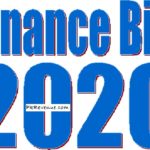ISLAMABAD: The finance ministry on Wednesday issued strategy for release of funds for development budget during fiscal year 2020/2021.
The undersigned is directed to refer to the subject mentioned above and to state that keeping in view the Public Finance Management Act (PFM) Act, 2019, the following strategy for release of funds relating to Development Budget for Financial Year 2020-21 shall be followed with immediate effect and until further orders:-
a) Funds for Development Budget shall be released by Finance Division at the level of 20 percent for the 1st Quarter, 30 percent each for 2nd and 3rd Quarter and 20 percent for 4th Quarter.
b) Ministry of Planning, Development and Special Initiative s shall devise project-wise/Division-wise strategy for release of funds for Public Sector Development Program (PSDP) within the appropriations approved by the National Assembly and included in the Schedule of Authorized Expenditure in terms of Article 83 of the Constitution.
c) All payments shall be made through the pre-audit system of the Accountant General Pakistan Revenue (AGPR)/ Military Accountant General (MAG)/ Accounting Offices/ Sub-Offices, or through Assignment Account procedure issued by the Finance Division. No direct payment through the State Bank of Pakistan shall be made, except with the prior approval of the Finance Secretary.
d) No authority shall incur or commit any expenditure from the “Federal Consolidated Fund” until the same has been sanctioned by the National Assembly and the expenditure has been provided for the financial year through (a) schedule of authorized of expenditure in terms of Article 83 of the Constitution, or (b) supplementary grant or technical supplementary grant as per Article 84 of the Constitution has been approved by the Federal Government, or (c) re-appropriation as per Sections 2(u) and 11 of the Public Finance Management Act, 2019.
e) There shall be no requirement of ways and means clearance from Budget Wing and endorsement of sanction letters by Expenditure Wing, Finance Division for the fund releases for PSDP approved projects.
f) All the sanctions for expenditure (in all forms) shall be issued and entered into SAP system by the Principle Accounting Officers (PAOs) before making payment by the Accounting Offices.
g) AGPR and other Accounting Offices shall not enter the sanction letters issued by the PAO into the SAP system and shall process the payments on verification of budget, fund release and sanction letter.
h) The provisions of Public Finance Management Act, 2019 shall be strictly adhered to by all the PAOs and the Accounting Offices.
i) The instructions with regard to all forms of supplementary grants shall be issued by the Budget Wing, Finance Division, separately.
j) The Development Wing of Finance Division shall coordinate and oversee the matters relating to release of funds for development of budget and other ancillary matters.




